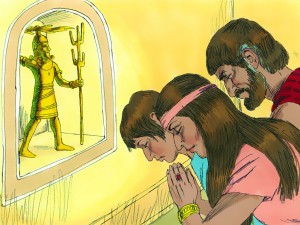
Carmina Burana is a scenic cantata composed by Carl Orff in 1935 and 1936, based on 24 poems from the medieval collection Carmina Burana. Carmina Burana is part of Trionfi, a musical triptych that also includes Catulli Carmina and Trionfo di Afrodite. The first and last movements of the piece are called “Fortuna Imperatrix Mundi” (Fortune, Empress of the World) and start with the very well known “O Fortuna”.
Carmina Burana es una cantata escénica compuesta por Carl Orff en 1935 y 1936, basado en 24 poemas de la colección medieval Carmina Burana. Carmina Burana es parte de Trionfi, un tríptico musical que también incluye Catulli Carmina y Trionfo di Afrodite. Los primeros y últimos movimientos de la pieza se llaman “Fortuna Imperatrix Mundi” (Fortune, Emperatriz del Mundo) y comienzan con el muy conocido “O Fortuna”.
Carmina Burana è una cantata scenica composta da Carl Orff nel 1935 e 1936, sulla base di 24 poesie della collezione medievale Carmina Burana. Carmina Burana è parte di Trionfi, un trittico musicale che comprende anche Catulli Carmina e Trionfo di Afrodite. Il primo e l’ultimo movimento del pezzo si chiamano “Fortuna Imperatrix Mundi” (Fortune, imperatrice del Mondo) e iniziare con il ben noto “O Fortuna”.
Source: Judges 2:6-3:6 Jueces 2:6-3:6(Español) Giudici 2:6-3:6(Italiano)
Judges 2:6-3:6
Disobedience and Defeat
6 After Joshua had dismissed the Israelites, they went to take possession of the land, each to their own inheritance. 7 The people served the Lord throughout the lifetime of Joshua and of the elders who outlived him and who had seen all the great things the Lord had done for Israel.
8 Joshua son of Nun, the servant of the Lord, died at the age of a hundred and ten. 9 And they buried him in the land of his inheritance, at Timnath Heres[a] in the hill country of Ephraim, north of Mount Gaash.
10 After that whole generation had been gathered to their ancestors, another generation grew up who knew neither the Lord nor what he had done for Israel. 11 Then the Israelites did evil in the eyes of the Lord and served the Baals. 12 They forsook the Lord, the God of their ancestors, who had brought them out of Egypt. They followed and worshiped various gods of the peoples around them. They aroused the Lord’s anger13 because they forsook him and served Baal and the Ashtoreths. 14 In his anger against Israel the Lord gave them into the hands of raiders who plundered them. He sold them into the hands of their enemies all around, whom they were no longer able to resist. 15 Whenever Israel went out to fight, the hand of the Lord was against them to defeat them, just as he had sworn to them. They were in great distress.
16 Then the Lord raised up judges,[b] who saved them out of the hands of these raiders. 17 Yet they would not listen to their judges but prostituted themselves to other gods and worshiped them. They quickly turned from the ways of their ancestors, who had been obedient to the Lord’s commands. 18 Whenever the Lordraised up a judge for them, he was with the judge and saved them out of the hands of their enemies as long as the judge lived; for the Lord relented because of their groaning under those who oppressed and afflictedthem. 19 But when the judge died, the people returned to ways even more corrupt than those of their ancestors, following other gods and serving and worshiping them. They refused to give up their evil practices and stubborn ways.
20 Therefore the Lord was very angry with Israel and said, “Because this nation has violated the covenant I ordained for their ancestors and has not listened to me, 21 I will no longer drive out before them any of the nations Joshua left when he died. 22 I will use them to test Israel and see whether they will keep the way of the Lord and walk in it as their ancestors did.” 23 The Lord had allowed those nations to remain; he did not drive them out at once by giving them into the hands of Joshua.
3 These are the nations the Lord left to test all those Israelites who had not experienced any of the wars in Canaan 2 (he did this only to teach warfare to the descendants of the Israelites who had not had previous battle experience): 3 the five rulers of the Philistines, all the Canaanites, the Sidonians, and the Hivites living in the Lebanon mountains from Mount Baal Hermon to Lebo Hamath. 4 They were left to test the Israelites to see whether they would obey the Lord’s commands, which he had given their ancestors through Moses.
5 The Israelites lived among the Canaanites, Hittites, Amorites, Perizzites, Hivites and Jebusites. 6 They took their daughters in marriage and gave their own daughters to their sons, and served their gods.
